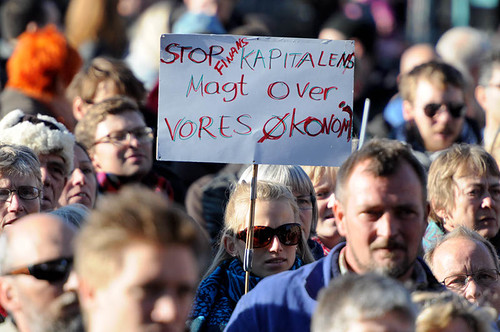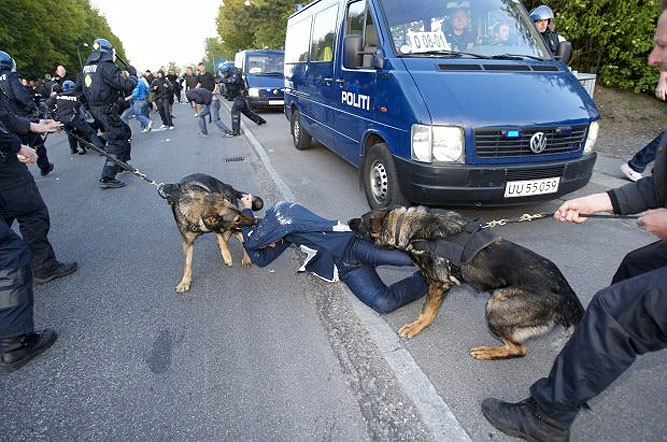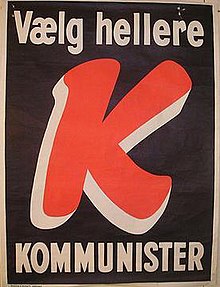A right-wing populist party, one of Europe's most influential, will face a test of voter sentiment at the ballot box. The Danish People's Party [DF] has been instrumental in tightening at least 20 laws pertaining to immigration and migration.
The path to the right-wing outsiders leads straight through the hallowed halls of Christiansborg Palace, right on past the red and white national flag, the "Danebrog," as well as the portrait gallery of past politicians and finally right under the heavy chandeliers in the country's political control center. This, it seems, is the place where the Danish People's Party feels most at home.
'We Are Proud of Our Policies'Messerschmidt is a member of the European Parliament and one of the party's strategic thinkers. He combats the political stigma of being defined as right-wing or xenophobic. "We are conservative," he says. "We are the only party that stands for national identity and tradition."
Messerschmidt speaks quickly, as if he wants to forestall any objections. "We are proud of our policies, and there is no greater success than having your policies get adopted by others," the alert young politician says. And that, he says, is why he believes in his party's re-election prospects.
For weeks now, however, Social Democratic challenger Helle Thorning-Schmidt, 44, with her three-partner, left of center "Red Block" has been two to four percentage points ahead of the "Blue Block" comprising of the Liberal party, the conservatives and the right-wing populists.
For 10 years now, the People's Party has backed the minority government in Copenhagen -- causing a sustained shift in the country's political climate. So far, the nationalists have succeeded in pushing through legislation to tighten at least 20 laws pertaining to immigrants and asylum seekers. Traditionally liberal Denmark is now the country with the most conservative legislation for foreigners in Europe -- an achievement that makes the People's Party proud.
A Secret Network of ExtremistsThe "secret lodge" with the name ORG, has formed the "backbone of the extreme right in Denmark" for more than 20 years, the journalists' initiative Redox concluded, reporting that the group was linked to racist associations, extremist football fans and neo-Nazis.
The secret network also reportedly conducts ceremonies reminiscent of the Ku Klux Klan and espouses its teachings of a "utopia of an ethnically homogenous society" at a private school attended by around 200 pupils. It also operates martial arts and shooting clubs and maintains a black list of politicians deemed to be "traitors to their country."
Over the years, the Denmark's right-wing populists have developed a steady base -- one that is easily reached with messages that are skeptical of the EU or anti-immigrant.
In Denmark, the Social Democrats believe there will be a "mood for change" in the country. Many Danes have grown tired of the country's right-wing image in the eyes of their European neighbors. That's a sentiment the Social Democratic challenger Thorning-Schmidt has sought to channel -- along with concerns about the economic crisis.
The country has seen an estimated 175,000 jobs lost in the crisis, it will have a budget shortfall of 85 billion crowns next year and a budget deficit of 4.6 percent instead of the budget surplus seen in 2008.
"After 10 years with a liberal-conservative government, Denmark is at a standstill," says Thorning-Schmidt. Now she only needs to convince the voters of that.
More at
Der Spiegel
 Christmas hearts is a unique Danish papercut tradition invented by the well-known Danish fairytale writer Hans Christian Andersen around 150 years ago. Basically, a Christmas heart consists of two pieces of folded glossy paper of different colours which are cut in a certain way and then woven together so that they form the shape of a heart. There are boundless numbers of possibilities for designs of these hearts.
Christmas hearts is a unique Danish papercut tradition invented by the well-known Danish fairytale writer Hans Christian Andersen around 150 years ago. Basically, a Christmas heart consists of two pieces of folded glossy paper of different colours which are cut in a certain way and then woven together so that they form the shape of a heart. There are boundless numbers of possibilities for designs of these hearts.








 A Dutch motorist appeared slightly alarmed after being stopped by customs officers after she entered Denmark from Germany at Froslev on Tuesday morning, the online edition of Jyllands-Posten reports.
A Dutch motorist appeared slightly alarmed after being stopped by customs officers after she entered Denmark from Germany at Froslev on Tuesday morning, the online edition of Jyllands-Posten reports.












